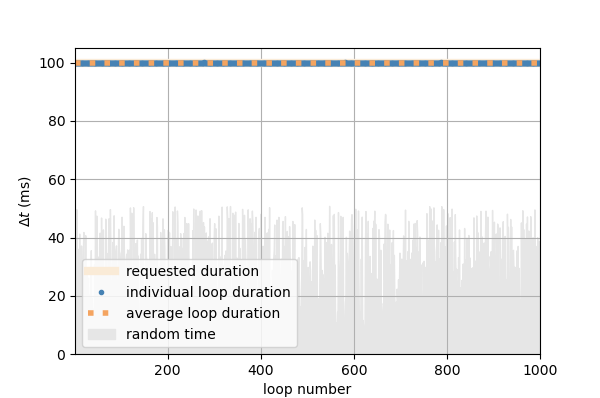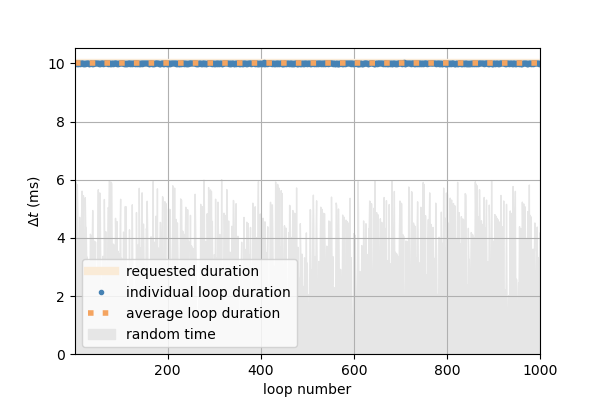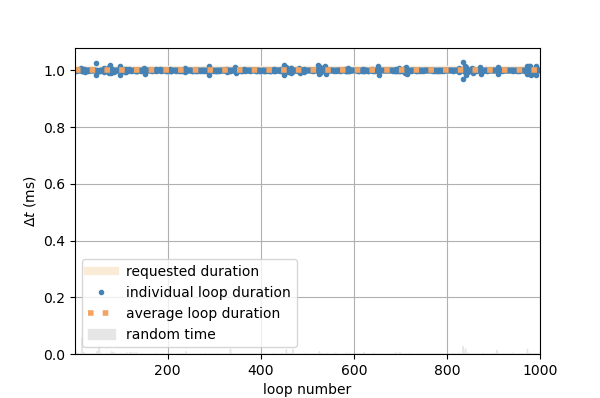This file summarizes accuracy test for loops of constant duration using the oclock.Timer class. Tests are done using the performance_test function (see Readme.md), e.g.
from oclock.performance import performance_test
performance_test(dt=0.1, nloops=1000, fmax=0.5, plot=True, precise=True)
Below are some results on timing accuracy in an Unix Environment (MacOS) and Windows, using nloops=1000, fmax=0.5 for various values of dt. Regular Timer means with precise=False while Precise Timer means with precise=True.
Requested dt (ms) |
1000 |
100 |
40 |
10 |
1 |
average dt - requested dt (ms) |
0.0012 |
0.00012 |
0.00016 |
0.00005 |
0.00023 |
standard deviation in dt (ms) |
0.48 |
0.36 |
0.31 |
0.23 |
0.08 |
Corresponding graphs:
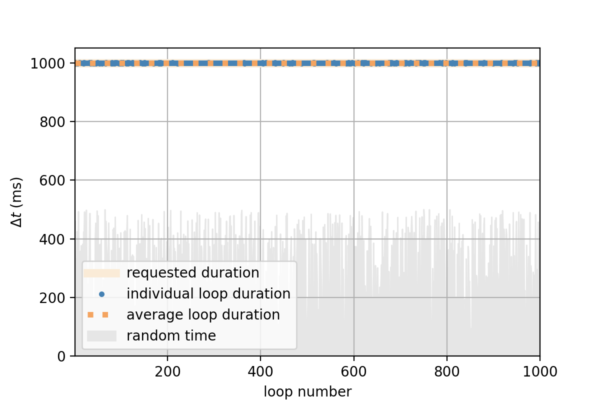
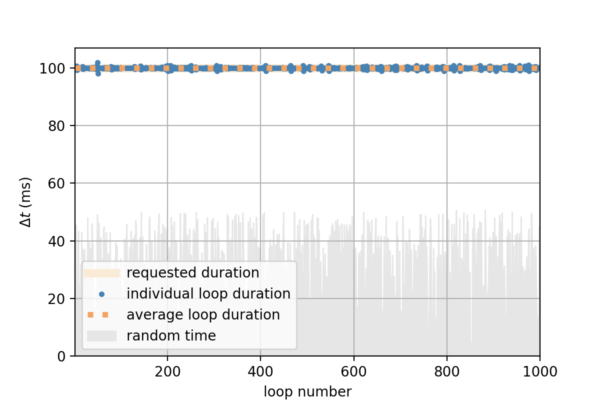

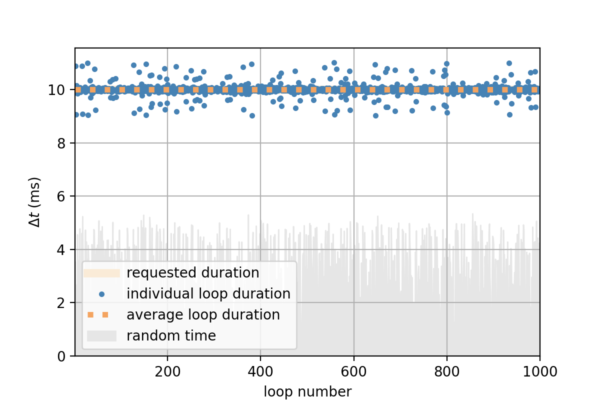
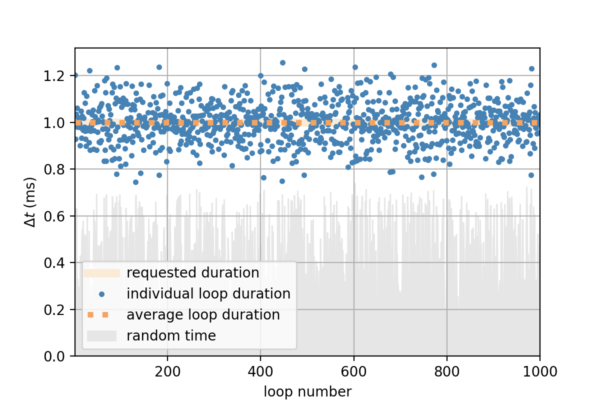
Requested dt (ms) |
1000 |
100 |
40 |
10 |
1 |
average dt - requested dt (ms) |
3.6E-5 |
3.4E-5 |
2.8E-5 |
3.0E-5 |
1.2E-5 |
standard deviation in dt (ms) |
0.0118 |
0.0104 |
0.0117 |
0.0105 |
0.0073 |
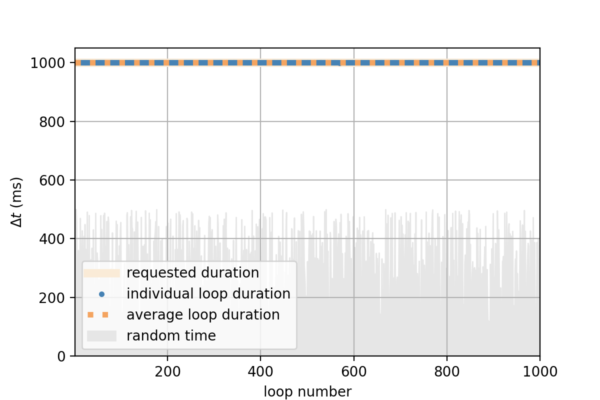
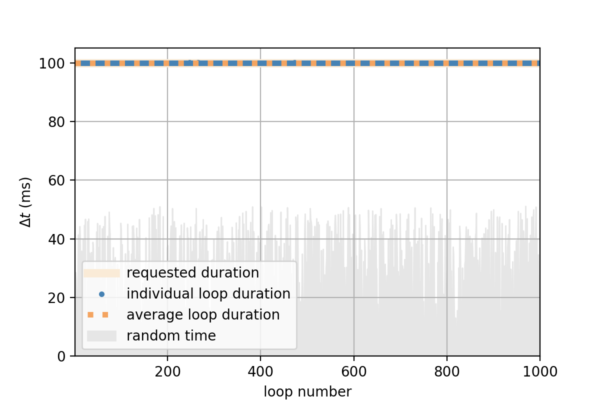

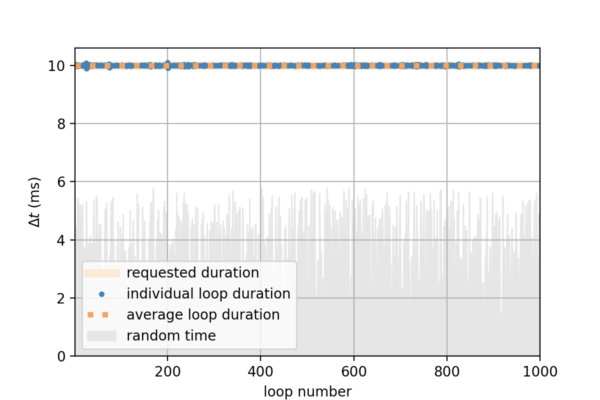
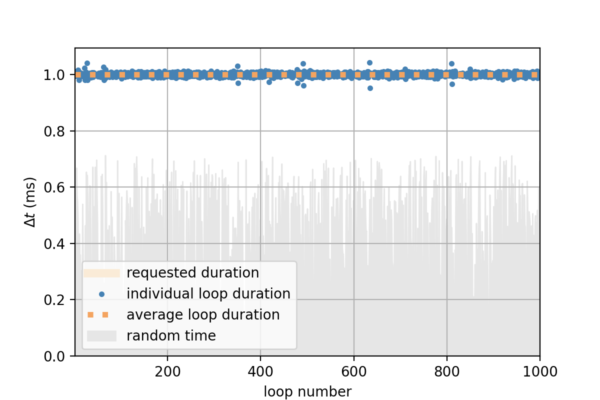
Requested dt (ms) |
1000 |
100 |
40 |
10 |
1 |
average dt - requested dt (ms) |
0.014 |
0.0015 |
0.0013 |
1.2 |
1.1 |
standard deviation in dt (ms) |
7.0 |
7.1 |
7.0 |
5.6 |
1.9 |
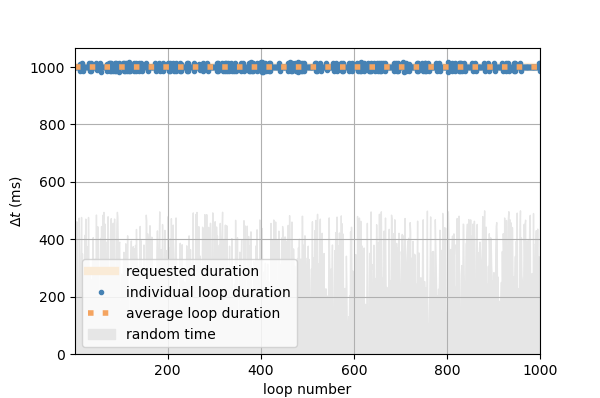
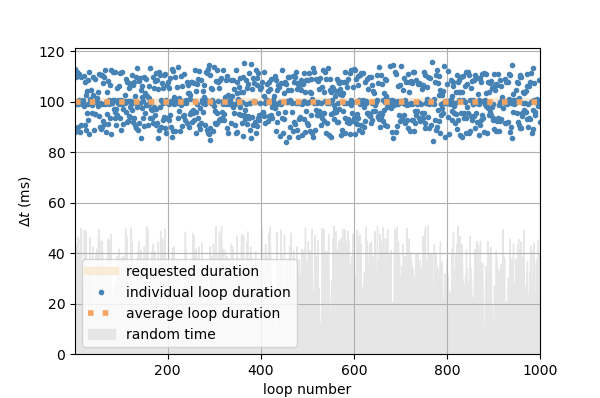

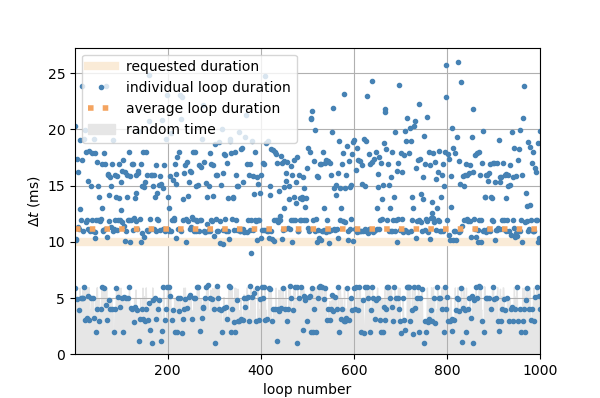
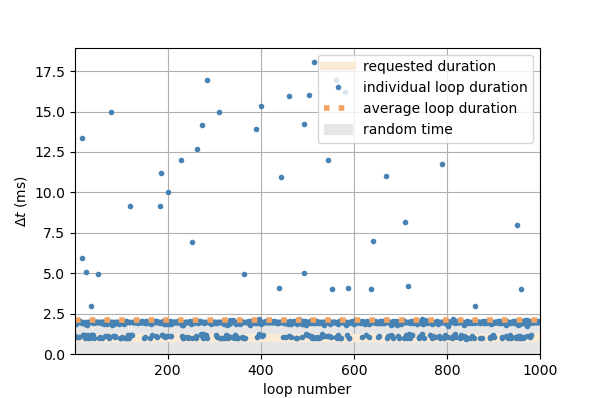
Requested dt (ms) |
1000 |
100 |
40 |
10 |
1 |
average dt - requested dt (ms) |
1.3E-5 |
1.5E-5 |
1.6E-5 |
6.7E-6 |
1.5E-6 |
standard deviation in dt (ms) |
0.0066 |
0.0100 |
0.0088 |
0.0068 |
0.0036 |

